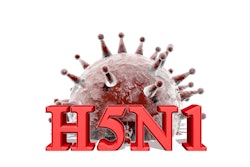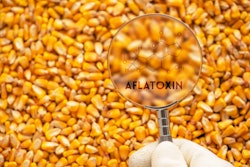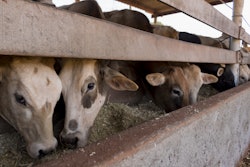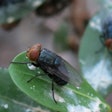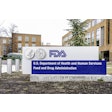Selko, the feed additives brand of Nutreco, convened a Mycotoxin Academy in Bengaluru, India, on July 24-25, 2024. The event brought together ten experts from across the globe, specializing in plant science, feed processing and animal production, to address the growing challenges posed by mycotoxins in animal feed. This inaugural academy highlighted the impact of emerging threats, such as climate change, on mycotoxin production throughout various stages—from crop field conditions to animal feed.
Plant Science and Mycotoxin Management
The academy delved into the critical areas of mycotoxin risk, focusing on how field conditions, raw material storage, feed production, and animal management contribute to mycotoxin challenges, particularly in Asia and Africa. Dr. Swamy Haladi, global technical commercial manager for Selko's mycotoxin risk management program, emphasized the importance of understanding these factors.
Key discussions centered around the detection and mitigation of masked and emerging mycotoxins. Dr. Haladi highlighted that enhanced detection techniques are now uncovering the widespread impact of these mycotoxins on animals and humans, with some regulatory bodies, especially in Western Europe, ramping up their detection efforts.
Prof. S.I. Harlapur, an expert in fungal pathology from the University of Agricultural Sciences, Dharwad, India, shared insights on how agricultural practices, such as soil management and selective breeding, can make crops more resistant to fungal invasion, thereby reducing mycotoxin contamination at the source.
Species-Specific Mycotoxin Risks
The academy also examined the effects of mycotoxin contamination on different animal species. Experts in ruminant, poultry and aquaculture production presented research on how mycotoxins impact various animals. Dr. Antonio Gallo from Università Cattolica del Sacro Cuore in Italy discussed the risks associated with mycotoxins in silages, TMR, and dairy cows, while Dr. Kai Kuehlman from Trouw Nutrition’s APAC region, highlighted the broader implications for human and animal health.
Dr. Melchior de Bruin of NutEx stressed the need for differential diagnosis when addressing mycotoxin-related health issues, cautioning against the assumption that mycotoxins are the root cause of all production problems.
Climate Change and Feed Safety
Warmer climates are exacerbating mycotoxin risks by supporting the growth of thermophilic fungi, which weaken plants' resistance to mycotoxins. The academy discussed the use of organic acids and mycotoxin mitigation agents to manage these risks proactively. Studies show that bentonite-based mycotoxin binding agents can be effective against certain mycotoxins, but Dr. Haladi noted that a multi-faceted approach, incorporating gut health and immune system enhancement, is essential for comprehensive protection.
Future Outlook in Asia and Africa
Reflecting on the event, Dr. Haladi underscored the high level of interest in mycotoxin management in Asia and Africa, regions that are increasingly vulnerable to these challenges. The Mycotoxin Academy served as a prelude to the World Mycotoxin Forum in 2025, where Selko will continue to advance the conversation as a gold sponsor.
Attendees praised the academy for its technical depth and practical insights. One participant from South India remarked, "It is my pleasure to attend such a technical seminar that focused primarily on mycotoxins and insights explained at the meeting are quite fantastic. Really, I am grateful for the opportunity."
Selko remains committed to investing in research and innovation to address mycotoxin challenges, ensuring the future of safe feed and food production in vulnerable regions like Asia and Africa.


